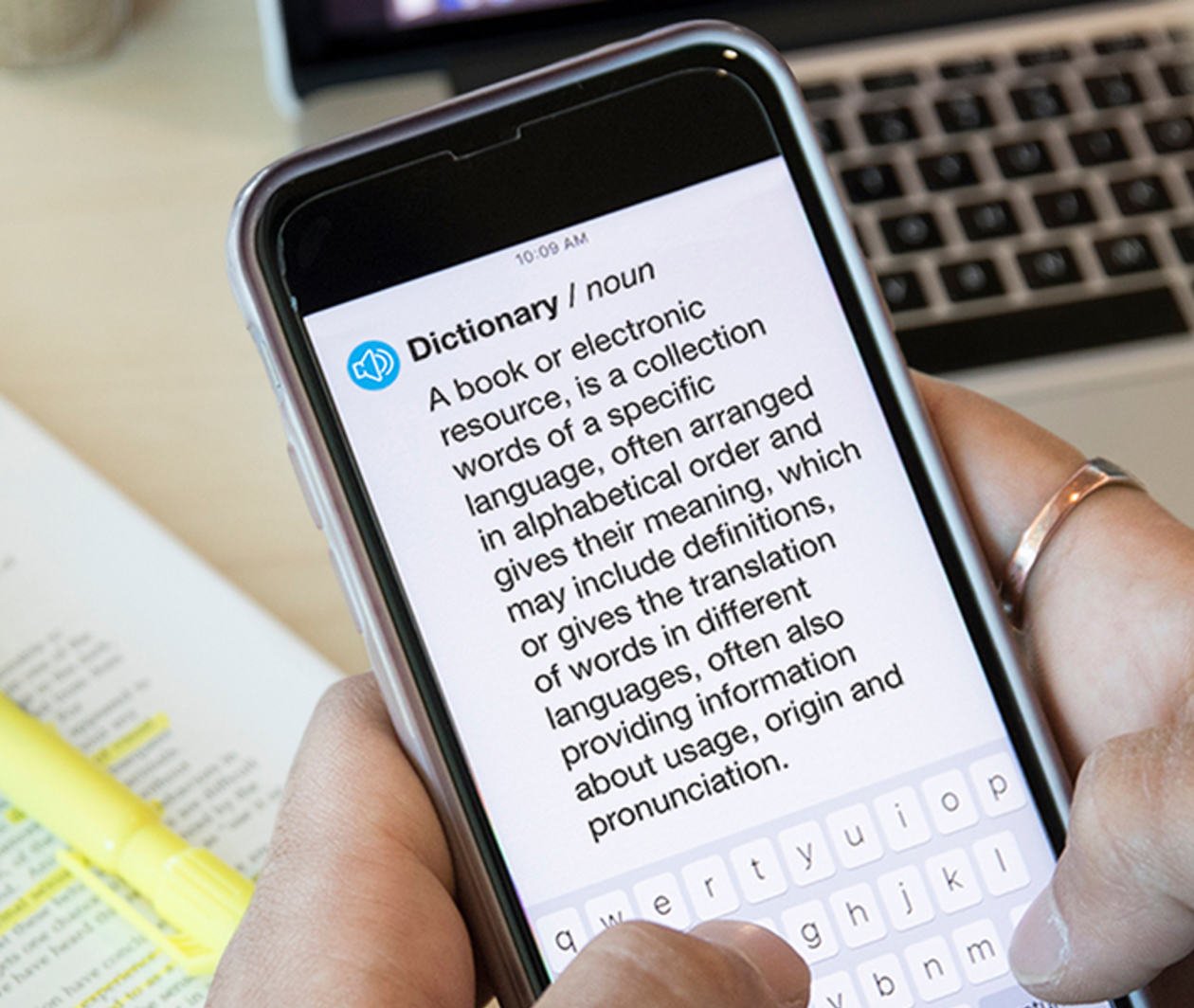Explore English dictionaries, from how they are compiled, the different types, to the latest lexicographic research.

Duration
6 weeksWeekly study
6 hours
Understanding English Dictionaries
Other courses you might like
This course isn't running right now. We can email you when it starts again, or check out these other courses you might like.
Browse more in Language and Literature
Discover the fascinating world of English dictionaries
While many people use dictionaries, they may not know very much about them, especially if they’re online. We aren’t usually aware of which dictionary an entry has come from, why the word was included in the dictionary, how the dictionary compilers assembled this information, or how valid it is.
On this course you will explore the ins and outs of English dictionaries, learning from established dictionary editors and researchers. You will explore subjects such as trends in lexicographic research, possible dictionary entry components, and the content and wording of definitions.
What topics will you cover?
Over the six weeks of the course, learners explore the key areas of the curriculum below through readings, articles, videos and multimedia resources, quizzes, social engagement with fellow learners and active learning resources:
- The reasons why we use dictionaries.
- The differences between ‘landmark’ dictionaries such as the Oxford English Dictionary and less conventional products such as collaborative and crowdsourced dictionaries.
- What goes into a dictionary – who decides, and how?
- Dictionaries and dictionary information for different users.
- The stages in corpus-based lexicography.
- How meanings are created, why some words have more than one meaning, how lexicographers identify meanings and how meanings are explained in a dictionary.
Learning on this course
On every step of the course you can meet other learners, share your ideas and join in with active discussions in the comments.
What will you achieve?
By the end of the course, you‘ll be able to...
- Compare the content and wording of definitions.
- Develop your understanding of the lexicographical choices and computational methods surrounding the selection and ordering of word meanings.
- Reflect on the range of possible dictionary entry components.
- Assess the roles of language technology, corpora and crowdsourcing in the dictionary compilation process.
- Explore some of the latest trends in lexicographic research.
Who is the course for?
This course is for anyone with a general interest in the English language. It might also be useful for those studying or teaching English, languages or lexicography.
Please note that the individuals listed below under the title “Who will you learn with?” may be subject to change.
Who will you learn with?
I am a Professor of English Language with research and teaching interests relating to corpus linguistics, English for Academic Purposes, and dictionary design and use.
An applied linguist with a PhD in dictionaries, new words & the media, I’ve taught at under-, postgraduate and secondary school levels. My commercial background is in dictionaries, PR and newspapers.
I'm a research fellow at The Alan Turing Institute and at the University of Cambridge. I conceived the MOOC on Dictionaries and contributed to its content. My research is on computational lexicography
I’m a lexicographer and corpus linguist, and have been working with corpora since the 1980s. I am the Editor of macmillandictionary.com, and run regular workshops in lexicography and lexical computing
Learning on FutureLearn
Your learning, your rules
- Courses are split into weeks, activities, and steps to help you keep track of your learning
- Learn through a mix of bite-sized videos, long- and short-form articles, audio, and practical activities
- Stay motivated by using the Progress page to keep track of your step completion and assessment scores
Join a global classroom
- Experience the power of social learning, and get inspired by an international network of learners
- Share ideas with your peers and course educators on every step of the course
- Join the conversation by reading, @ing, liking, bookmarking, and replying to comments from others
Map your progress
- As you work through the course, use notifications and the Progress page to guide your learning
- Whenever you’re ready, mark each step as complete, you’re in control
- Complete 90% of course steps and all of the assessments to earn your certificate
Want to know more about learning on FutureLearn? Using FutureLearn
Learner reviews
Learner reviews cannot be loaded due to your cookie settings. Please and refresh the page to view this content.
Do you know someone who'd love this course? Tell them about it...
You can use the hashtag #FLdictionaries to talk about this course on social media.


